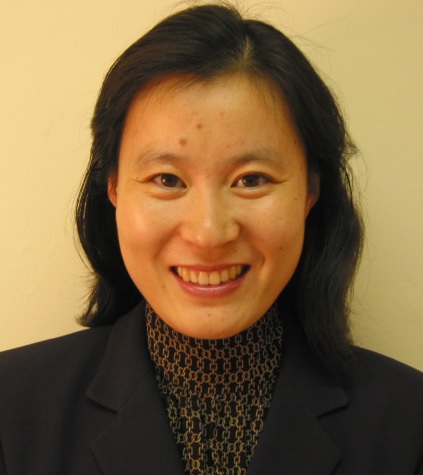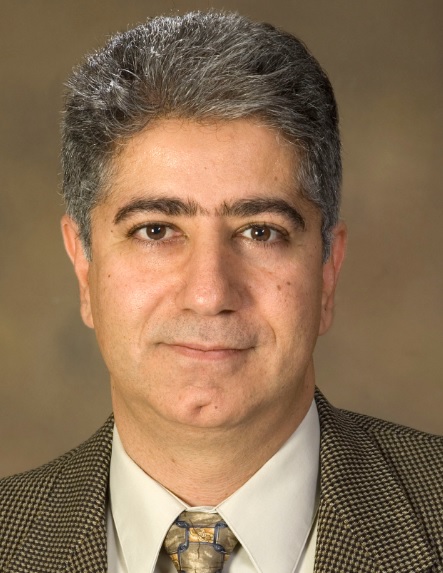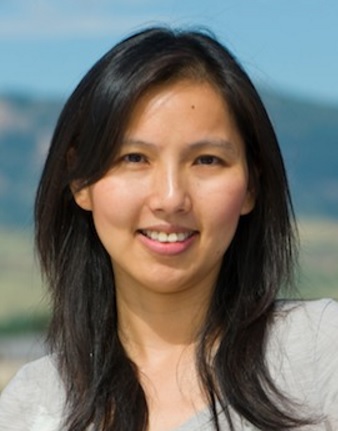


Distinguished Lectures
ICNC 2018 features 4 Distinguished Lectures, which are OPEN to ALL attendees of the conference and workshops.

Xiuzhen Cheng (IEEE Fellow)
Professor,
George
Washington University, USA
Title: Smart IoT Security
Time:
13:30-15:30, Monday, March 5, 2018
Abstract:
Smart IoT devices have been more prevalent than ever before but the relevant
security considerations fail to keep up with due to device and technology
heterogeneity as well as resource constraints, making IoT systems
susceptible to various attacks. This talk will discuss the vulnerabilities
found in recent years from the popular IoT devices, their communication
protocols, and the corresponding Apps. These vulnerabilities are mainly
resulted from design flaws, misconfigurations, and implementation bugs. Such
vulnerabilities can be easily exploited by attackers, generally without
sophisticated domain-specific knowledge, to develop and launch various
attacks that may cause severe consequences. For example, in the 2017 IEEE
Symposium on Security and Privacy, researchers reported that an
implementation bug of the ZigBee Light Link protocol, which has been widely
adopted by many IoT systems, can be exploited by attackers to quickly
propagate worms such that adjacent IoT devices in a large area can be
infected, causing massive denial of service attacks. This talk will present
several example studies to demonstrate the challenges faced by securing
smart IoT systems; it will also highlight a few open research issues in this
exciting area.
Biography:
Xiuzhen "Susan" Cheng's research spans the broad area of wireless networking and mobile computing. She is currently working on a few projects that tackle the challenges of efficient network resource management, role-based access control and secure communications, dynamic spectrum access, and economically-robust/secure auctions. Professor Cheng is also interested in applying wireless networking to public health. She has been working on target vaccination based on social networks, security and privacy concerns in wireless body area networks, and safety enhancement via vehicle networks. She is a Fellow of IEEE.

Marwan Krunz (IEEE Fellow)
Kenneth VonBehren Endowed Professor,
University
of Arizona, USA
Title: Obfuscation of Transmission Fingerprints for Secure Wireless
Communications
Time:
10:00-12:00, Monday, March 5, 2018
Abstract:
As we continue to depend on the rapidly expanding wireless ecosystem, we are
challenged with threats related to user privacy, data confidentiality, and
critical system availability. A significant portion of these threats is
attributed to the broadcast nature of wireless transmissions. Using
commodity radio hardware, unauthorized parties can easily eavesdrop on
over-the-air transmissions and breach the privacy of communicating users by
tracking their whereabouts and movements, and inferring their associations,
health state, and preferences. Common (application-level) cryptographic
mechanisms fail to provide adequate security and privacy, as they leave
low-level transmission identifiers open to traffic analysis. This talk will
present various examples of leaked transmission signatures and discuss how
they have been used to breach user privacy and launch sophisticated jamming
attacks. A number of mitigation techniques for obfuscating wireless
fingerprints and countering malicious eavesdropping will then be presented.
Biography:
Marwan Krunz is the Kenneth VonBehren Endowed Professor in the Department of Electrical & Computer Engineering, the University of Arizona. He holds a joint appointment in the CS Department. Since April 2013, he has been the site co-director of the Broadband Wireless Access and Applications Center, a multi-university industry-focused NSF center that includes 5 university sites and 16+ industry affiliates. He received his Ph.D. degree in electrical engineering from Michigan State University in 1995. He joined the University of Arizona in January 1997, after a brief postdoctoral stint at the University of Maryland. In 2010, he was a Visiting Chair of Excellence at the University of Carlos III de Madrid. He previously held other visiting research positions at INRIA-Sophia Antipolis, HP Labs, University of Paris VI, University of Paris V, University of Jordan, and US West Advanced Technologies. Dr. Krunz’s research interests lie in the areas of wireless communications and networking, with emphasis on resource management, adaptive protocols, and security issues. He has published more than 250 journal articles and peer-reviewed conference papers, and is a co-inventor on several US patents. M. Krunz is an IEEE Fellow, an Arizona Engineering Faculty Fellow (2011-2014), and an IEEE Communications Society Distinguished Lecturer (2013 and 2014). He was the recipient of the 2012 IEEE TCCC Outstanding Service Award. He received the NSF CAREER award in 1998.
He currently serves as the Editor-in-Chief for the IEEE Transactions on Mobile Computing (TMC), one of the top-tier journals in the field of wireless and mobile computing. He also serves on the editorial board for the IEEE Transactions on Cognitive Communications and Networking. Previously, he served on the editorial boards for the IEEE/ACM Transactions on Networking, the IEEE Transactions on Mobile Computing, the IEEE Transactions on Network and Service Management, Computer Communications Journal, and the IEEE Communications Interactive Magazine. He was the general vice-chair for WiOpt 2016, TPC chair (Networking Track) for WCNC 2016, general co-chair for WiSec’12, TPC chair for INFOCOM’04, TPC co-chair for SECON’05, TPC co-chair for WoWMoM’06, and others. He was the keynote speaker, an invited panelist, and a tutorial presenter at numerous international conferences.

Hamid Sharif (IEEE Fellow)
Charles Vranek
Professor,
University
of Nebraska-Lincoln, USA
Title: Packet Stream Authentication for Covert Channels
Time:
16:00-18:00, Monday, March 5, 2018
Abstract:
The phenomenal growth in Internet accessibility over the past years has
spurred the explosion of online social and multimedia services. This huge
information exchanges in the form of messages, images, and audios have
provided ideal covers for hiding information with data exchanges. Different
techniques of Steganography can hide secret messages within ordinary images
and audios while Covert Channels hide information within communication
protocols on wired or wireless channels. Covert Channels pose significant
security risks because of hiding transfer of information out of a protected
cyber infrastructure without being detected. Currently the detection
mechanisms have limited impact against some of the Covert Channels. This
talk will discuss Covert Channels and present a technique inspired by
biological systems and bioinformatics which characterizes the unique traffic
patterns of packets over network links as a descriptor for each link –
similar to an organism’s DNA. This talk will also discuss the potential of
this approach for blind Covert Channel detection.
Biography:
Dr. Hamid Sharif is the Charles J. Vranek Distinguished Professor in the Department of Electrical and Computer Engineering at the University of Nebraska-Lincoln. He is also the Director of Advanced Telecommunications Engineering Laboratory (TEL) at University of Nebraska-Lincoln. Dr. Sharif has over 30 years of academic and industrial experience and his research interests include security in communication networks, surface vehicular communications, wireless sensor networks, multimedia security, network modeling and simulations and embedded systems. He has published over 300 refereed research papers in international journals and conferences. Dr. Sharif is recipient of several best papers and many outstanding Research and Teaching Awards from IEEE, International Research Institutions, and the University of Nebraska-Lincoln, including recipient of the Fulbright Fellowship Award in Science, Technology and Innovation in 2013. He has made significant contributions to development and implementation of wireless communications for freight railroads which have profoundly impacted the wireless communications for rail industry in North America and Canada. He is a Fellow of IEEE and a current Distinguished Lecturer of IEEE Vehicular Technology Society.

Liuqing Yang (IEEE Fellow)
Professor,
Colorado State University, USA
Title: Vehicular
Communications and Networking: Where Benz Meets Marconi
Time:
10:00-12:00, Thursday, March 8, 2018
Abstract:
Recently, we are witnessing the overwhelming research and development in
automobile technology, energy research as well as artificial intelligence
towards an era of transportation involving smart vehicles, automatic
driving, and electric vehicles. All these urgently call for advanced
vehicular communications capable of supporting massive data exchanges at
highly stringent latency requirements. 130 years since Karl Benz invented
motor cars, and 120 years since Marconi’s first demonstration of wireless,
time eventually seems to come for the two great human inventions to
integrate to revolutionize today’s transportation. As such, it is not
surprising that this area is gaining significant attention from both
industry and academia for its essential role in, and great potential of
bringing to reality, the intelligent transportation revolution envisioned in
the coming decade. Vehicular environments are inherently challenging with
doubly selective physical channels, constrained radio spectrum bandwidth
resources, and constantly changing network connectivity and topology. Hence,
research in this area is essential for bringing to reality the many
demanding vehicular applications that consist of the gateway towards the
ultimate connected mobility. In this tutorial, fundamentals of vehicular
channels will be comprehensively analyzed, based on which various practical
communications and networking techniques will be introduced. Challenges and
opportunities in this field will also be discussed to stimulate future
research and development from various industry and academia sectors.
Biography:
Dr. Liuqing Yang received her Ph.D. degree in Electrical and Computer Engineering from the University of Minnesota, Minneapolis, in 2004. Since August 2004, she has been with the Department of Electrical and Computer Engineering at the University of Florida, Gainesville, where she became an Associate Professor in 2009. She joined Colorado State University in 2010 and now is a Professor. Her general interests are in areas signal processing with applications to communications, networking and power systems " subjects on which she has published more than 140 journal and conference papers, 2 book chapters and 1 book.
Dr. Yang was the recipient of the Best Dissertation Award in the Physical Sciences & Engineering from the University of Minnesota in 2004, the Best Paper Award at the IEEE International Conference on UWB in 2006, the AFOSR Summer Faculty Fellowship in 2007, the ONR Young Investigator Program (YIP) award in 2007, the NSF Faculty Early Career Development (CAREER) award in 2009, the IEEE GLOBECOM 2010 Outstanding Service Award, the Best Paper Award at IEEE/CIC Internatiaonl Conference on Communications in 2013, the Best Paper Award at the IEEE International Conference on Intelligent Transportation Systems in 2014, the Best Paper Award in IEEE Globecom 2014 and the Best Paper Award in IEEE ICC 2016. She is a Fellow of IEEE and a Distinguished Lecturer of IEEE Communications Society.